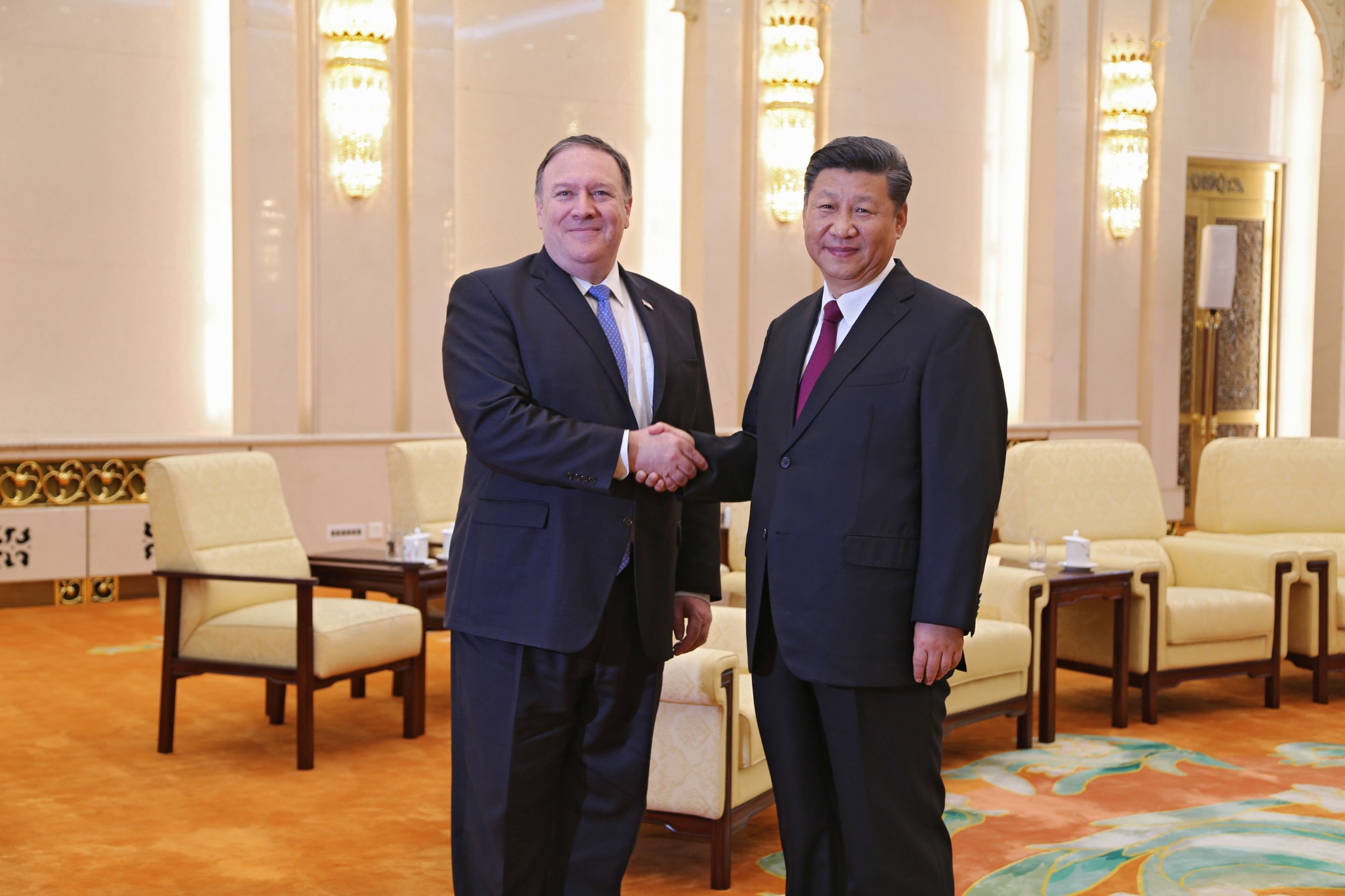 Public Domain. Secretary of State Mike Pompeo and President Xi Jinping.
Public Domain. Secretary of State Mike Pompeo and President Xi Jinping.
China, ETIM, and the Politics of Terrorist Designation Lists
On November 6th, U.S. Secretary of State Mike Pompeo publicly announced that the United States had removed the East Turkestan Islamic Movement (ETIM) from the U.S. Terrorist Exclusion List. According to a State Department spokesperson, the move was justified because “for more than a decade, there has been no credible evidence that ETIM continues to exist.” The announcement was met with anger from China with officials accusing the U.S.’ “two-faced approach” to counterterrorism (CT) as being a means to undermine China’s national security.
Since 9/11, much of China’s CT focus has been placed on ETIM because of their connection to al-Qaeda. However, controversial measures to combat the separatist organization, particularly the internment of millions of Uighur Muslims, have garnered criticism and questions over the true intention of China’s CT policies.
ETIM and China’s “War on Terror”
The primary goal for ETIM has been the establishment of an independent Uighur state called ‘East Turkestan.’ Although the Muslim separatist group had been active in the early 2000s, many experts are now questioning the extent of ETIM’s activities. Nonetheless, China has continually cast blame on the group for terrorist attacks, but the government’s tight control over information pertaining to their activity has only increased skepticism.
Since the mid-1990s, China has sought to stifle advocates for Uighur independence in Xinjiang, but following the 9/11 terrorist attacks on the U.S., the Chinese government’s repressive measures against the Uighurs became part of its CT strategy. This change was bolstered by the U.S. designation of ETIM as a terrorist organization in 2002; a move deemed necessary by the Bush administration in order to enlist the support of China in the Global War on Terror.
The 2014 launch of China’s “Strike Hard Against Violent Terrorism” campaign, has only increased the government’s repressive policies against Uighur Muslims in the Xinjiang Uighur Autonomous Region (XUAR). A 2019 publishing of leaked internal documents from authorities in the XUAR exposed the use of internment camps, forced labor, and indoctrination programs for Uighur Muslims; China has justified the ruthless measures as necessary to deter the threat from ETIM.
In the face of growing international scrutiny over China’s treatment of the Uighur population, questions over the intent of Chinese CT measures have come into focus. The lines between China’s ostensible security threat and its traditional policy of oppression against political dissidents and minorities continue to blur; many see the security threat as cover for the suppression of the Uighur population.
Terrorist Designations as a Political Tool
The lack of a universally agreed upon definition of ‘terrorism,’ which varies for international organizations and even U.S. interagencies, allows for the characterization of extremist groups to be exploited for political means. Therefore, it should come as no surprise that terrorist designations are used as a political tool to promote U.S. interests. For example, the U.S. designation of ETIM as a terrorist organization was part of an effort to recruit Chinese cooperation in the U.S.-led Global War on Terror. The recent removal of Sudan from the U.S. list of state sponsors of terrorism was part of a larger agreement by the Trump administration to collect monetary compensation for U.S. victims of terror and to normalize Sudan-Israel relations.
The recent delisting of ETIM should not be seen any differently. It comes at a time when unfavorable views over China’s policies, ranging from their handling of COVID-19 to the internment of millions of Uighurs, have reached historic highs. ETIM’s delisting might increase this negative sentiment between the global community and China as it puts even more focus on their treatment of the Uighurs, and could potentially incur more drastic measures such as sanctions from U.S. allies. Although the U.S. has already imposed sanctions on China for its repressive Uighur policies, a wider international effort to impose punitive sanctions by could prove favorable for the U.S., and costly for China, as economic and diplomatic tensions continue between the two nations.





